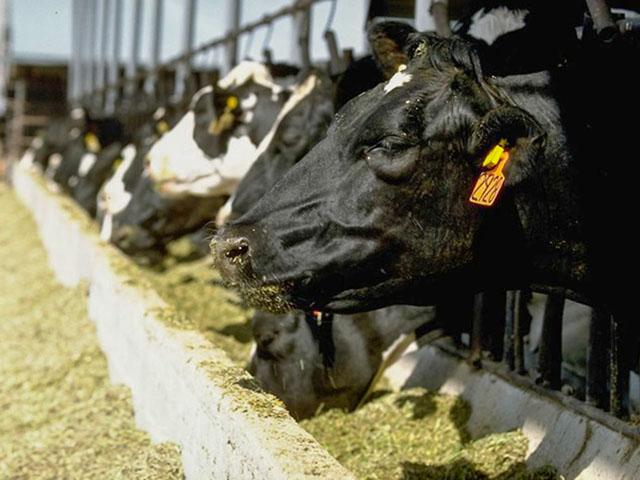Feed Ingredient Overhaul
Regulating Gut-Based Feed Additives for Livestock as Drugs
The American Feed Industry Association (AFIA) continues to stress that the U.S. is lagging behind much of the rest of the world when it comes to the approval of feed ingredients for livestock and pets.
At a recent listening session at the Food and Drug Administration's (FDA) Center for Veterinary Medicine, Director Of Regulatory Affairs for the AFIA Louise Calderwood said the U.S. is behind most of the world, including the European Union, Canada, Brazil, Chile, Columbia, Australia and Thailand, when it comes to approving what she called "safe and effective feed ingredients with animal production, environmental and other benefits." She added that delays in approval are preventing farmers and pet owners from accessing technologies and limiting the U.S. in progress on climate and food security goals.
"We believe our country does not have time to waste," Calderwood said. "Our farmers and ranchers are prepared to do their part, and it is time for the Food and Drug Administration to recalibrate the clock and move ahead with long-needed changes to its policy."
Calderwood was referring to what she called "game-changing solutions that act solely on or in the digestive tracts of animals." These gut-based technologies include those that she explained do the following:
-- Support gastrointestinal tract function and enhance GI microbiome to address animal well-being.
-- Reduce environmental emissions from cattle, hogs and poultry, thereby reducing the release of greenhouse and other gases from livestock.
-- Promote greater immunity to diseases in livestock and pets.
-- Provide animals with resilience to food contaminants, such as mycotoxins.
P[L1] D[0x0] M[300x250] OOP[F] ADUNIT[] T[]
-- Promote general wellness for livestock and support aging pets by addressing mobility and cognitive issues.
-- Increase the safety of food for humans.
-- Support efficient production of meat, milk and eggs from healthy animals.
Calderwood said that the U.S. animal food industry can't use these technologies currently, due to policy interpretation that requires these types of products be regulated as animal drugs, not as feed ingredients.
"Sure, these ingredients could be put through the regulatory review process as a new animal drug, but they should not have to be," she said. "They are clearly feed ingredients and should be regulated as such. Our members tell us they have products approved in dozens of other countries that they cannot submit for review at the FDA because of policy limitations."
Calderwood added that the AFIA's position is that the science surrounding the functionality of new animal food ingredients has advanced to the point that production claims can be properly substantiated and can be truthful and not misleading.
Asked about the FDA's timeline, Calderwood told DTN that she is hopeful the FDA will have materials available for public review early next year.
FDA PROMISES TO LOOK AT ITS POLICY
Earlier this summer, the FDA agreed it was time to take a second look at its policy for approving feed ingredients. Part of that effort included the recent listening session, where AFIA's Calderwood spoke. The FDA earlier acknowledged that treating feed ingredients as drugs makes them subject to a lengthy review process.
Responding to questions from Sen. Jerry Moran, R-Kan., in July, FDA Commissioner Robert Califf committed to reviewing the agency's policy. He noted that an important consideration had to be the impact of emissions.
One product, Bovaer, with claims of consistently reducing emissions by 30%, and approved in the EU, for example, continues to be under consideration at the FDA as an animal drug. The status of that application was unknown at publication time.
In the U.S., Elanco and Royal DSM created a strategic alliance, with Elanco reported as having gained exclusive licensing rights to develop, manufacture and commercialize Bovaer. Earlier this year, Cision reported that Bovaer is expected to have "blockbuster revenue potential" for Elanco, in excess of $200 million.
At publication time, Bovaer was available for sale in the EU, Switzerland, Brazil, Chile and Australia.
One group of producers that may have unique concerns when it comes to feed ingredients are those focused on the organic market niche.
Currently, USDA's National Organic Program livestock and poultry standards, which apply to animals used for meat, milk, eggs and other animal products sold, labeled or represented as organic, state that those producers "must feed livestock agricultural feed products that are 100% organic, and they may also be allowed vitamin and mineral supplements."
Will these long-debated additives be considered "organic?" AFIA's Calderwood said many of these products are certainly supportive of organic production in that they mitigate the need for antibiotics. But she noted that whether they are classified as organic will likely depend in no small part on how USDA views the production process of the additives.
Victoria Myers can be reached at vicki.myers@dtn.com
Follow her on Twitter @myersPF
(c) Copyright 2022 DTN, LLC. All rights reserved.





